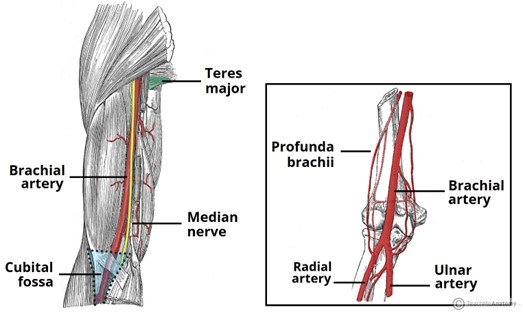A nurse is caring for a client who is receiving parenteral nutrition and has a new prescription for probiotic therapy. Which of the following findings indicates that the therapy is effective?
Client reports ability to complete ADLs.
Client's mucous membranes are pink.
Client's blood glucose level is within the expected reference range.
Client has soft, formed bowel movements.
The Correct Answer is D
Choice A reason: Reporting ability to complete ADLs is not a specific finding that indicates that probiotic therapy is effective. Ability to complete ADLs depends on various factors, such as energy level, muscle strength, mobility, cognition, and motivation. Ability to complete ADLs may improve with parenteral nutrition, but not necessarily with probiotic therapy.
Choice B reason: Having pink mucous membranes is not a specific finding that indicates that probiotic therapy is effective. Pink mucous membranes reflect adequate hydration and oxygenation status, which are important for overall health, but not directly related to probiotic therapy.
Choice C reason: Having blood glucose level within the expected reference range is not a specific finding that indicates that probiotic therapy is effective. Blood glucose level is influenced by carbohydrate intake, insulin production, and medication use, which are related to parenteral nutrition, but not probiotic therapy.
Choice D reason: Having soft, formed bowel movements is a specific finding that indicates that probiotic therapy is effective. Probiotic therapy is the use of beneficial bacteria or yeast to restore the normal flora and function of the gastrointestinal tract, which can prevent or treat diarrhea, constipation, or infection. Having soft, formed bowel movements shows that the client has a healthy and balanced gut microbiome.

Nursing Test Bank
Naxlex Comprehensive Predictor Exams
Related Questions
Correct Answer is C
Explanation
Choice A reason: Using an electronic device is not a reliable method for measuring blood pressure because it may give inaccurate readings due to movement, noise, or battery issues. An electronic device should be calibrated regularly and compared with a manual device.
Choice B reason: Inflating the cuff to 140/90 mmHg is not a correct procedure for measuring blood pressure because it may cause discomfort and false readings. The cuff should be inflated to about 20 to 30 mmHg above the expected systolic pressure or until the pulse disappears.
Choice C reason: Placing the cuff on the upper arm is a correct procedure for measuring blood pressure because it ensures that the cuff is at the same level as the heart and that the brachial artery is compressed. The cuff should be snug and fit around 80% of the arm circumference.
Choice D reason: Measuring blood pressure after exercise is not a good time for measuring blood pressure because it may reflect a temporary increase due to physical activity. Blood pressure should be measured after resting for at least 5 minutes in a quiet and comfortable environment.

Correct Answer is D
Explanation
Choice A reason: Recommending a total fat intake of 12 g each day is not an appropriate action for the nurse to take because it is too low for most adults. The recommended dietary allowance (RDA. for fat is 20 to 35% of total calories per day, which translates to about 44 to 78 g of fat per day for an average adult who consumes 2,000 calories per day.
Choice B reason: Referring the client to a weight-loss support group is not an appropriate action for the nurse to take because the client does not need to lose weight. A body mass index (BMI) of 22 is within the normal range, which is 18.5 to 24.9. A weight-loss support group is more suitable for clients who have a BMI of 25 or higher, which indicates overweight or obesity.
Choice C reason: Advising the client to add 500 calories per day to the diet is not an appropriate action for the nurse to take because it may lead to weight gain. A client who has a BMI of 22 does not need to increase their caloric intake unless they have other medical conditions or nutritional needs that require more calories. Adding 500 calories per day to the diet can result in gaining about one pound per week, which can increase the risk of obesity and its complications.
Choice D reason: Encouraging the client to continue current daily caloric intake is an appropriate action for the nurse to take because it can help maintain a healthy weight. A client who has a BMI of 22 has a balanced energy intake and expenditure, which means that they consume enough calories to meet their metabolic needs and physical activity level. Continuing current daily caloric intake can prevent weight loss or gain and promote health and wellness.
Whether you are a student looking to ace your exams or a practicing nurse seeking to enhance your expertise , our nursing education contents will empower you with the confidence and competence to make a difference in the lives of patients and become a respected leader in the healthcare field.
Visit Naxlex, invest in your future and unlock endless possibilities with our unparalleled nursing education contents today
Report Wrong Answer on the Current Question
Do you disagree with the answer? If yes, what is your expected answer? Explain.
Kindly be descriptive with the issue you are facing.
